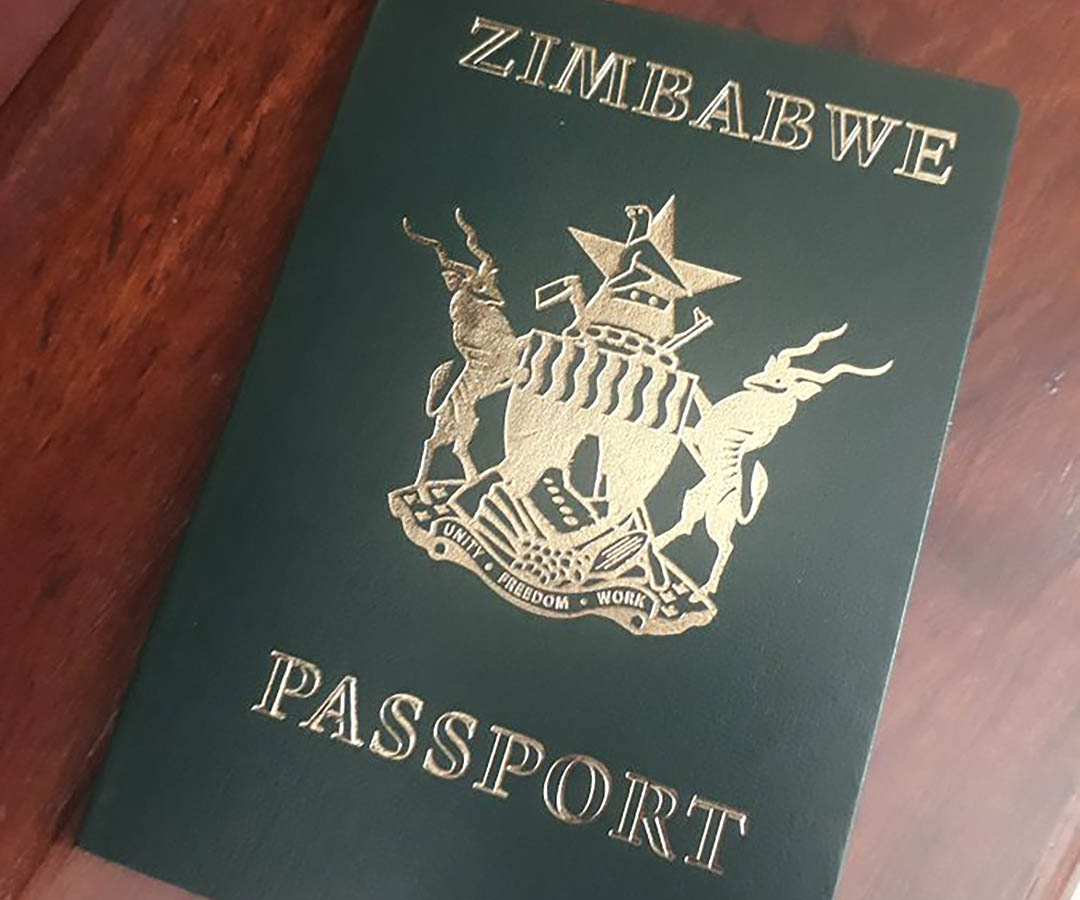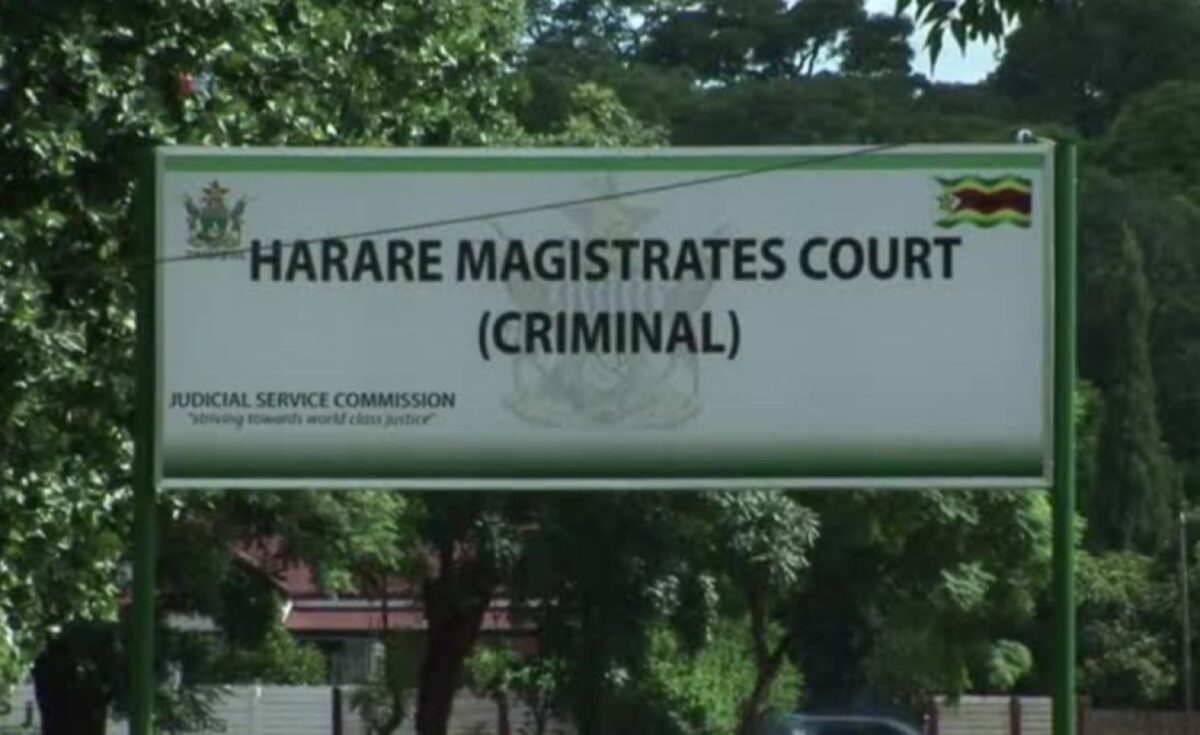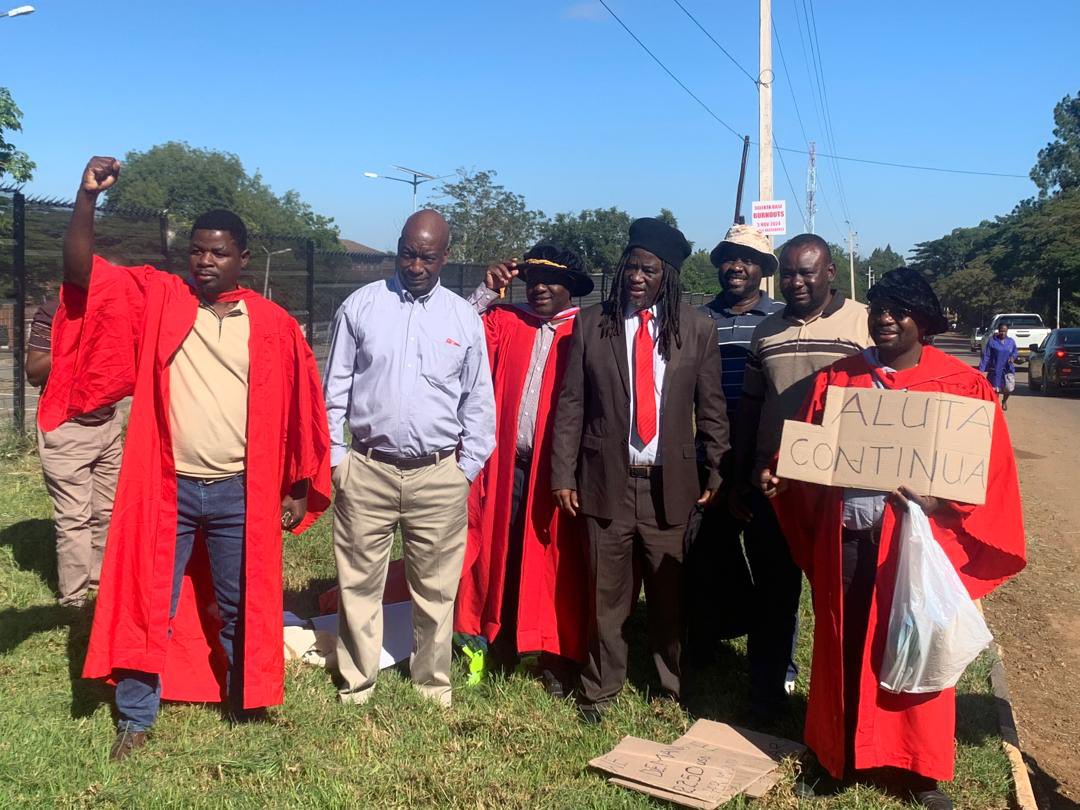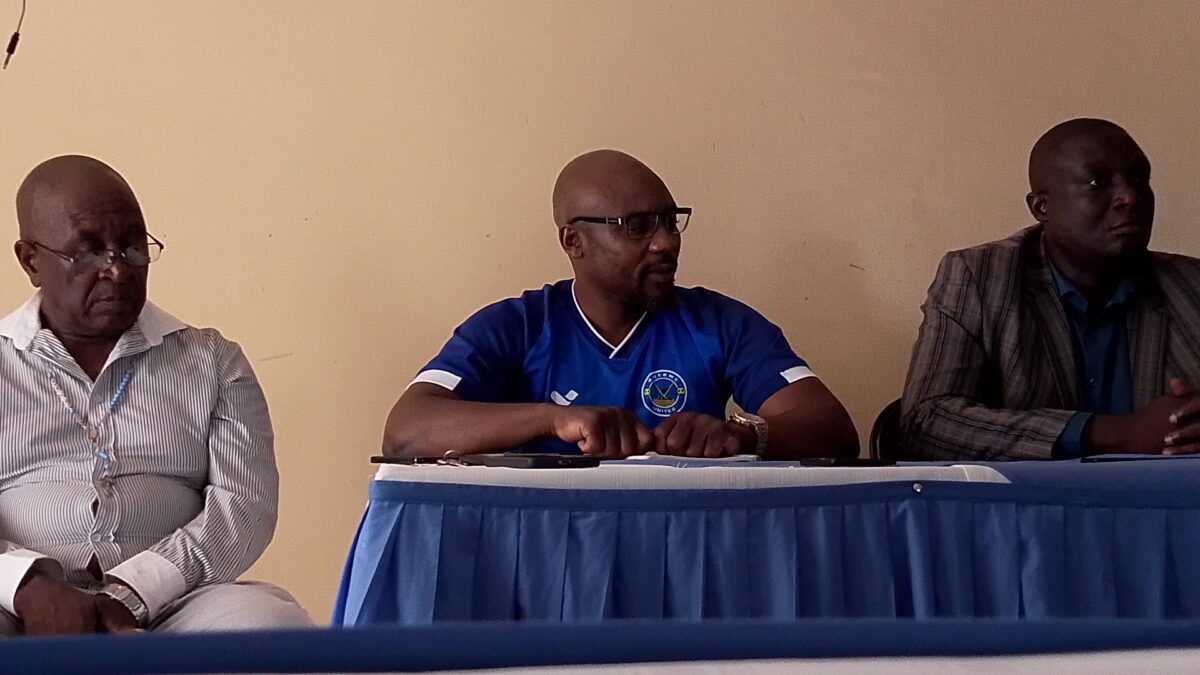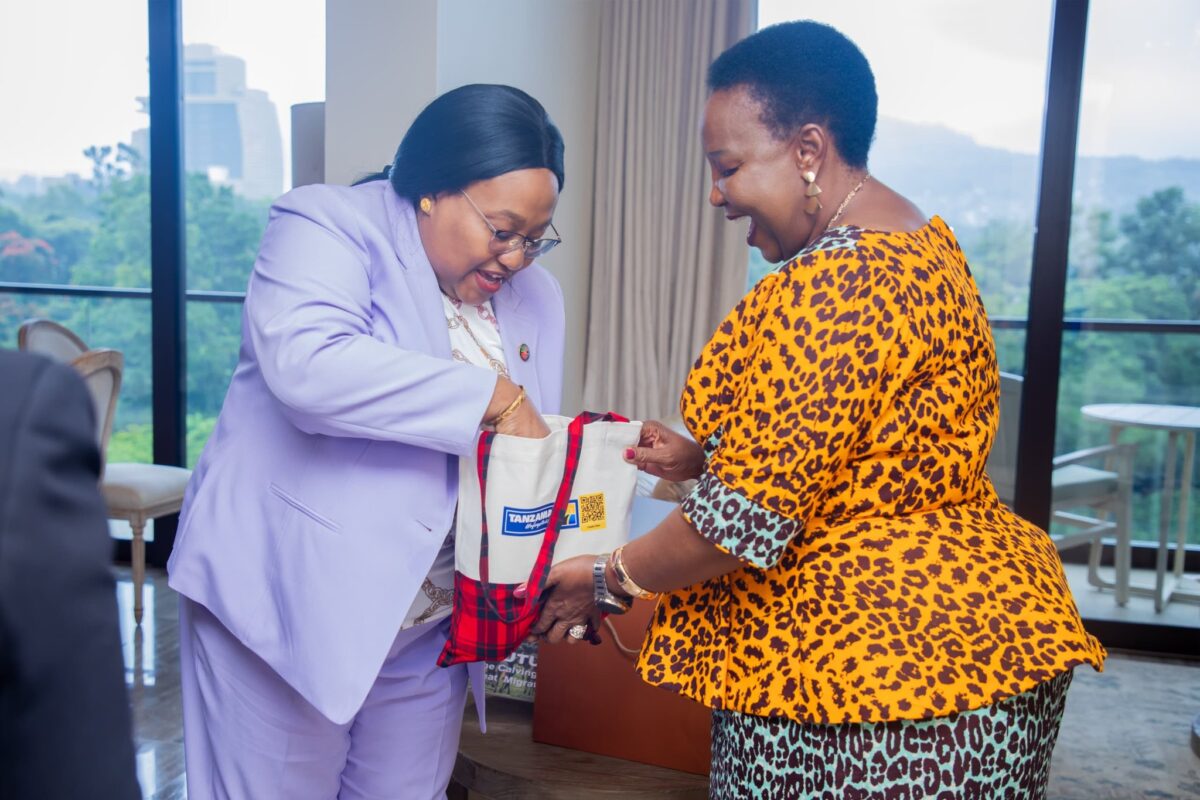BULAWAYO – A Belgian company linked to bribes-for-tenders in over half-a-dozen countries has been awarded a multi-million-dollar contract to produce biometric passports for Zimbabwe, ZimLive can reveal.
Zimbabwe’s cabinet in May approved the “engagement of a private partner in the implementation of a national biometric database for the production of e-passports, national identity cards and birth certificates.”
Instead of advertising the tender, however, officials in the ministry of home affairs and treasury have handpicked Belgian company, Semlex, for the contract despite its history of corruption on at least two continents.
A September 2020 investigation by the Organised Crime and Corruption Reporting Project (OCCRP) found that Semlex “used bribes, kickbacks and insider dealing to secure contracts around the world, inflating the cost of vital documents for ordinary citizens while lining the pockets of wealthy elites.”
Its corrupt footprints can be found in the Democratic Republic of Congo, Madagascar, Mozambique, Ivory Coast, Kyrgyzstan, The Gambia, Comoros, Gabon, Chad and Congo-Brazzaville.
Home affairs minister Kazembe Kazembe confirmed the awarding of the contract, but declined to reveal the total cost of the project. Compared to other projects Semlex has undertaken in Africa, it could be in the hundreds of millions of dollars.
Kazembe told ZimLive last week: “The agreement with Semlex is a BOOT (Build Own Operate Transfer). They offered to do it for the government at no cost to the government.
“The offer was brought to cabinet months ago and was approved by cabinet. They will come, build, deploy the latest technology and operate. They are investing their money and they will recoup from the revenue.
“This will bring a lasting solution to the identity documents challenges as people will be able to apply for these online. The issue of consumables challenges will be a thing of the past.
“However, in-between now and the time when they will be ready to produce the passports, the government will continue producing passports the way we have always done. When they (Semlex) are ready, the Registrar General will simply migrate to the new system.”
Zimbabwe’s broke government has struggled to raise foreign currency to import passport booklets, creating a backlog of over 250,000. The government also stopped the issuance of identity cards after failing to import consumables used in their production.
Last month, the government fixed new passport prices in United States dollars, with an ordinary passport pegged at US$60. Semlex’s history in countries where it has taken over passport production shows that passport prices inevitably go up.
Kazembe failed to guarantee that passport prices would not go up.
He said: “Prices will be agreed by the ministry of finance and the investor. The citizens will be protected.”
Kazembe declined to disclose the cost of the deal with Semlex, referring all questions to the finance ministry.
“Financial issues are between treasury and the investor,” he maintained.
A spokesman for finance minister Mthuli Ncube said: “I’m not sure the ministry can even divulge such information because contract terms could be confidential in those respects.”
The MDC Alliance has accused President Emmerson Mnangagwa’s government of bypassing tender procedures in the awarding of the contract. The party’s spokesperson Fadzayi Mahere said Mnangagwa’s regime lacked “ethical leadership.”
“We are extremely concerned by the regime’s penchant for dodgy deals and the failure to comply with due process and a transparent tender regime in the award of such an important public contract,” Mahere told ZimLive.
“A simple internet search of the company that has been awarded this significant deal reveals that it uses bribes, kickbacks and insider dealing to secure contracts around the world, inflating the cost of vital documents for ordinary citizens while lining the pockets of wealthy elites.
“Our concern is compounded by the complete failure by the Zimbabwe Anti-Corruption Commission to investigate and expose such corruption in line with its constitutional mandate. Rather, ZACC has been abused by the executive and has failed to act in the face of grand corruption scandals revealed by the Auditor General’s Report, the Sentry Report and the Cartels Report. The Public Accounts Committee in Parliament has been immobilised through the illegal recall of Honourable Tendai Biti, removing the oversight role of Parliament in matters of public expenditure.
“When all is said and done, it is the citizen who has to bear the brunt and cost of this grossly unethical leadership. Corruption is killing us and deep, systemic political and economic reforms are required to address it.”
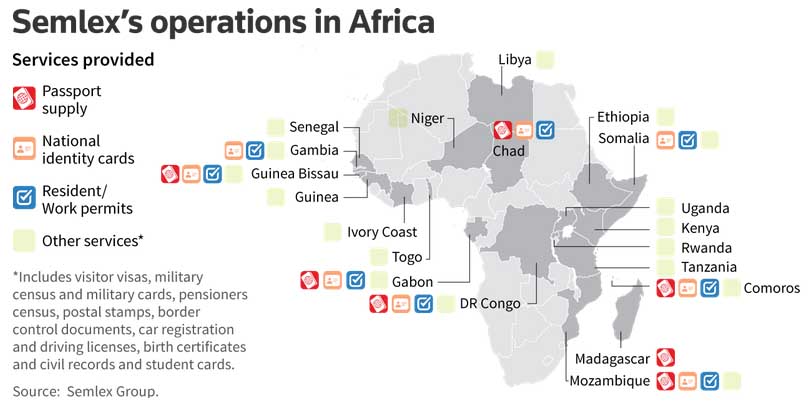
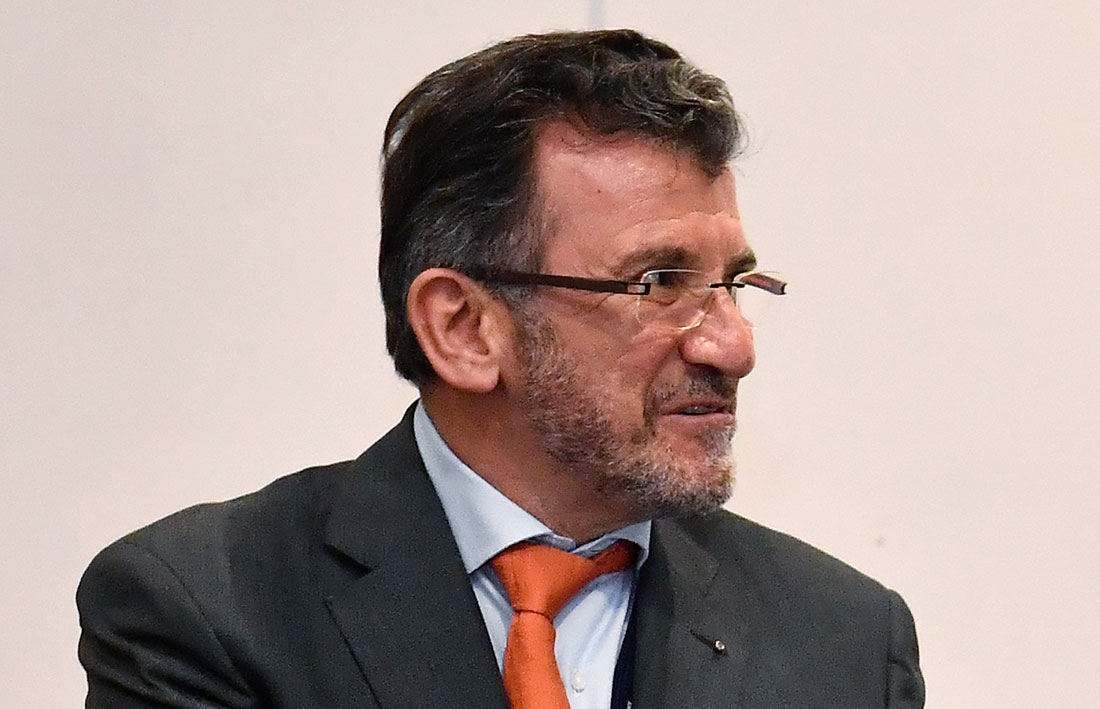
Semlex is owned by Syria-born Albert Karaziwan, a Belgian citizen.
In a 2017 investigation, the Reuters news agency reported that Semlex “has won business in Africa – on paper worth hundreds of millions of dollars – through political connections, sometimes without going through open tender processes and sometimes while making payments to intermediaries.”
In 2015, the DRC’s budget ministry approved a US$450 million contract with Semlex to supply biometric passports and ID cards for its 70 million citizens. The passport price went up from US$100 to US$185, making the DRC’s passport among the world’s most expensive, even though its people are on average among the poorest.
That deal arranged for US$60 from each passport to go to an obscure Gulf company owned by a close relative of the DRC’s then President Joseph Kabila.
In May last year, the new government of President Felix Tshisekedi said it would not renew the Semlex contract. Prosecutors have been investigating allegations of money laundering and corruption by Semlex.
In 2017, Mozambique terminated a 10-year Semlex contract, potentially worth several hundred million dollars, that had been awarded in 2009 by the country’s previous government. The deal was struck without an open tender. The current Mozambican government says Semlex invested a fraction of the US$100 million it had promised to spend on training, electronic scanners at borders and other infrastructure. It says citizens lost out from the deal.
In the Comoros, a parliamentary commission of inquiry investigated the sale of passports to foreigners to determine whether the process had been legal, who was involved and where revenues went. Investigators found that more than 2,800 Comoros diplomatic passports were issued since 2008 in a country with a population of about 800,000. In that period, at least 184 diplomatic passports were sold to non-Comorans, data gathered by the investigators showed.
Karaziwan was born in Aleppo, Syria, in 1958, in a family of eight children. In the 1980s, he moved to Brussels to study and went on to marry Belgian, Cathrine Laurent.
Over the years, Karaziwan developed businesses in real estate, restaurants and hotels, according to his company website and corporate documents. He set up Semlex in 1992 and prospered. In a copy of his CV shared with colleagues in 2008, Karaziwan said his businesses had a combined value of 100 million euros.
Semlex is a family company and not listed on a stock exchange. Its main operating unit, Semlex Europe, has a core of only about a dozen employees, according to company documents. Semlex documents uncovered by Reuters showed the informal way Karaziwan and his associates have worked behind the scenes to punch above their weight.
In June 2004, for example, Helder Tavares Proenca, a writer and politician, was named as Semlex’s agent in the West African country of Guinea-Bissau. In November 2005, Proenca became defence minister and in early 2006 Semlex won contracts to supply the country with passports, visas, ID cards and foreign resident cards, according to Semlex copies of the agreements.
Semlex documents showed the company paid Proenca at least 80,000 euros (US$94,000) between 2004 and 2009. Proenca was killed in 2009 in an assassination that police suspected was related to drug smuggling.
In 2010, Semlex employees discussed in emails what percentage of revenue they would have to pay former and serving Guinea-Bissau officials to secure a further contract to provide the country with passports and resident cards for foreigners. According to Semlex emails, a proposal was made to pay a commission amounting to 20 percent of the price each citizen would have to pay for a passport and 15 percent of the revenue that Semlex received for residence permits issued to foreigners.
Other Semlex emails showed that company staff described some payments as bribes. In November 2010, Michele Bauters, the firm’s finance manager, asked an employee to detail how he had spent nearly 80,000 euros provided in cash for operations in Africa, according to Semlex emails.
Much of the money had gone on rent and utility bills, the employee said, and 10,000 euros had gone on a “pot de vin” – French for bribes. The employee’s explanation for what had happened to half of the 10,000 euros was blunt: “A bribe that Albert Karaziwan made me pay recently.”
In response to the employee’s apparent irritation at being asked for explanations, Bauters said Karaziwan had merely wanted to know how the money had been spent and made no reference to the mention of bribes.
Other documents illustrate how Semlex appears to benefit more than the state coffers of countries that agree to its deals. In 2013, Semlex extended an existing contract with Madagascar to supply passports and more than doubled the amount it charged. Under the new deal, citizens had to pay 36.25 euros (around US$47) for a passport; of that, the state received 2.5 euros and Semlex got 33.75 euros, a contract between the two sides showed. Previously, Semlex received 15.50 euros per passport.
The cost of making passports can be modest. Invoices from Imprimerie National, a French state-owned printing firm that used to produce blank passports for Semlex to complete with personal details, show that Semlex paid 1.75 euros to 2 euros per document for projects in Madagascar, Gabon and Comoros in 2007 and 2008.
Semlex now has its own printing operation to produce passports.
On May 7, 2012, the public prosecutor’s office in Brussels sent Karaziwan a letter calling him in to answer questions related to potential money laundering involving Semlex operations in Africa. Over the course of 2012, Karaziwan faced several rounds of questions about Semlex and its activities.
At one point a lawyer acting for Karaziwan met the prosecutor and later told Karaziwan in a letter that the prosecutor planned to recommend an audit by the tax authorities or to file charges. Neither happened. Instead, the investigation was dropped in 2012.

Semlex pioneered its prolific use of political fixers in Chad, which appears to be one of the first African countries where it won biometric contracts. Starting in 2001, the company won at least 40 million euros’ worth of contracts there. Its people worked with an adviser to President Idriss Déby named Abderrahman Moussa, whom a U.S. diplomatic cable described as an “insider’s insider” with decades of service in the country’s political and military circles.
Semlex also paid 1.8 million euros (US$2.2 million) to a company controlled by Déby’s ex-wife, Zina Wazouna Ahmed Idriss, and set up contracts with both her and their son, Douga, between 2008 and 2010. She is referred to as Madame Idriss in Semlex emails.
In November 2007 and February 2008, Semlex secured two deals worth around 21 million euros to produce passports, visas and ID cards for Gabon. From early 2008 to early 2010, Wazouna received payments totalling some 1.6 million euros ($1.9 million) from Semlex, according to a Semlex spreadsheet of costs related to Wazouna reviewed by Reuters. The payments were described in invoices sent to Semlex as commissions for helping land business in Gabon.
Wazouna is described in her Chadian passport as a psychologist and in her Gabonese passport as an adviser to the Gabon foreign ministry.
In Madagascar, Semlex paid a former top official in Madagascar’s government at least US$140,000 — and possibly much more — in unexplained fees. The company secretly funneled cash to Lucien Victor Razakanirina, who contracted them as suppliers to the Southern African island nation while serving as secretary of state for public security.
Leaked account statements obtained by OCCRP show Semlex paid Razakanirina more than 120,000 euros (about US$140,000) between 2007 and 2009 in a series of unexplained transfers and monthly “consulting fees.” Figures from internal emails suggest he also received a monthly stipend of several thousand euros during 2010 and early 2011.
Today, Semlex is still making Madagascar’s passports, which cost US$50 – the equivalent of a month’s salary for a Malagasy on a minimum wage in a country where most people live on less than US$2 a day.
In 2019, a tender for the supply of the latest generation of passport booklets was floated in the Central Asian country of Kyrgyzstan. The winner was Semlex’s Lithuanian subsidiary, Garsu Pasaulis. The winning bid of US$13.4 million quickly became the centre of a major corruption probe after Kyrgyzstan’s state security agency, known as the GKNB, accused both current and former government officials of accepting bribes from Garsu Pasaulis in the form of payment for international travel.
(Additional reporting by OCCRP and Reuters)

